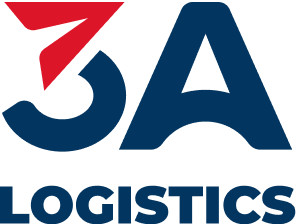Table of Contents
ToggleWhat is Air Cargo Transportation Service?
Air cargo transportation involves the shipment of goods via dedicated cargo aircraft (Freight) or in the cargo holds of passenger planes. Although air cargo accounts for less than 1% of the total weight of transported goods, it represents around 35% of the world’s commercial trade value. This underscores the importance and lucrative potential of air cargo in the foreseeable future.

Advantages and Disadvantages of Air Cargo Transportation
1.1. Advantages:
- Speed: Aircraft are the fastest means of transportation, with an average speed of 800 – 1000 km/h, ensuring rapid delivery.
- High Safety: Goods are securely stored during transportation, minimizing the risk of damage or loss.
- Low Insurance Costs: Due to high safety levels, insurance costs for air cargo are often lower compared to other transportation methods.
- Cost-Efficient Storage: Compact goods requiring less storage time result in cost savings.
1.2. Disadvantages:
- High Costs: Due to stringent safety and speed requirements, air cargo transportation costs are generally higher than other methods.
- Weight Limitations: Goods must comply with the allowable weight and dimensions of the aircraft.
- Complex Procedures: Strict security and safety regulations lead to more intricate and time-consuming procedures.
- Weather Impact: Adverse weather conditions can cause delays or cancellations.
Types of Permitted and Restricted Cargo for Air Transportation
Permitted:
- General Cargo: Goods with no issues regarding size, content, or packaging.
- Special Cargo: Includes live animals, high-value items, perishable goods, hazardous materials, etc.
Not Permitted:
- Illegal Substances: Drugs, stimulants, weapons, military equipment.
- Contraband: Obscene or subversive materials.
- Hazardous Materials: Explosive, polluting substances.
- Living Organisms: Animals, specific food items requiring special preservation.
Detailed Process of Air Cargo Transportation
To facilitate easy tracking of progress, understanding the steps involved in the air cargo transportation process is essential:
Air Cargo Transportation Process:
- Contract Signing: Agreement between the transportation company and the service user.
- Booking: Verify flight details, cargo type, and quantity.
- Packing: Package goods according to standards, preparing for transportation.
- Export Customs Procedures: Prepare necessary export documentation.
- Issuance of Air Waybill (AWB): Complete customs procedures and receive the air waybill.
- Document Dispatch via Email: The Forwarder sends a scanned copy of AWB and related documents.
- Notification of Arrival: The transportation agent informs about the transportation schedule and status.
- Delivery Order: Forwarder receives delivery instructions and documents from the airline.
- Import Customs Procedures: Complete import procedures.
- Goods Reception: Forwarder transports goods to the designated location.
Reliable and Professional Air Cargo Transportation Services at 3A Logistics
3A Logistics offers professional international transportation services, including air cargo transportation. Collaborating with leading airlines, 3A ensures fast, secure, and efficient transportation services, meeting the diverse needs of import-export
– Nguồn: Sưu Tầm –












